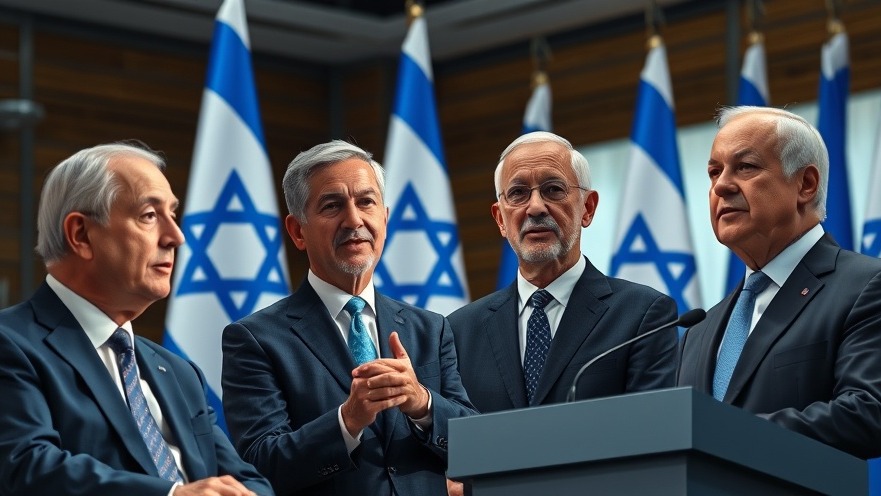
Trump’s Knesset Address: A New Chapter for U.S.-Israel Relations
In a highly publicized address to the Knesset, President Donald Trump took the stage in Israel recently to share his vision of a revitalized relationship between the U.S. and Israel. Following the release of Israeli hostages from Gaza, Trump aimed to shift the narrative from conflict to cooperation, declaring the end of ongoing strife and the start of a promising path forward. Yet, the speech wasn't just about optimism for the future; it was also a moment for Trump to take aim at his political rivals.
Acknowledging Achievements Amidst Controversy
During his hour-long speech, Trump lauded his administration's role in brokering peace and welcomed the return of hostages, celebrating it as a significant milestone for Israeli security. He proclaimed, "You’ve won," urging Israel to embrace peace and progress following military successes against adversaries. However, it was his jabs at former leaders Barack Obama and Joe Biden, whom he accused of harboring "hatred" for Israel, that defined the tone of the speech. By blaming them for the stalemates that led to increased tension in the region, Trump positioned himself as a transformative figure in U.S. foreign policy.
Setting Records Straight: The Political Fallout
Trump's remarks reflected his ongoing feud with Democratic leaders. He remarked, "We had a very weak administration," expressing disdain for Biden and revisiting past criticisms of Obama’s 2015 Iran nuclear deal, which he argued created a subsequent rise in violence across the Middle East. His intention was clear: to depict himself as the president who not only saved Israel but also revitalized American prestige internationally.
Crowd Reactions: A Moment of Triumph?
Inside the Knesset, Trump was met with applause and enthusiasm, with Prime Minister Benjamin Netanyahu praising him as “the greatest friend Israel has ever had in the White House.” This admiration signifies a post-Obama, post-Biden era, where Trump claims to restore U.S. influence in the Middle East. His audacious claims about the strength of America's position now compared to a year ago culminated in him stating, “It is the hottest country anywhere in the world.” Such declarations aim to rally the base that feels neglected during previous administrations.
The Global Perspective: What Lies Ahead?
The future trajectory of U.S.-Middle East relations is murky, with Trump's promises juxtaposed against the realities of complex geopolitical landscapes. Suggestions that even Iran could be a partner in peace were framed as hopeful rather than naive, and while Trump extended an olive branch, his history with Iranian leaders suggests skepticism from global observers.
Engagement with the Kansas City Community
As local Kansas City residents and businesses look to engage more meaningfully with current events, Trump's speech serves as a critical case study in political rhetoric and international relations. Understanding the implications of high-stakes diplomacy can provide invaluable insights into how national events affect local perspectives and businesses. The evolving dynamics in U.S. relations with Israel, and the broader Middle East, may ultimately influence trade, tourism, and diplomatic engagements even at the local level.
Have a story to share or want to contact us for more details? Drop us an email at team@kansascitythrive.com
 Add Row
Add Row  Add
Add 




Write A Comment